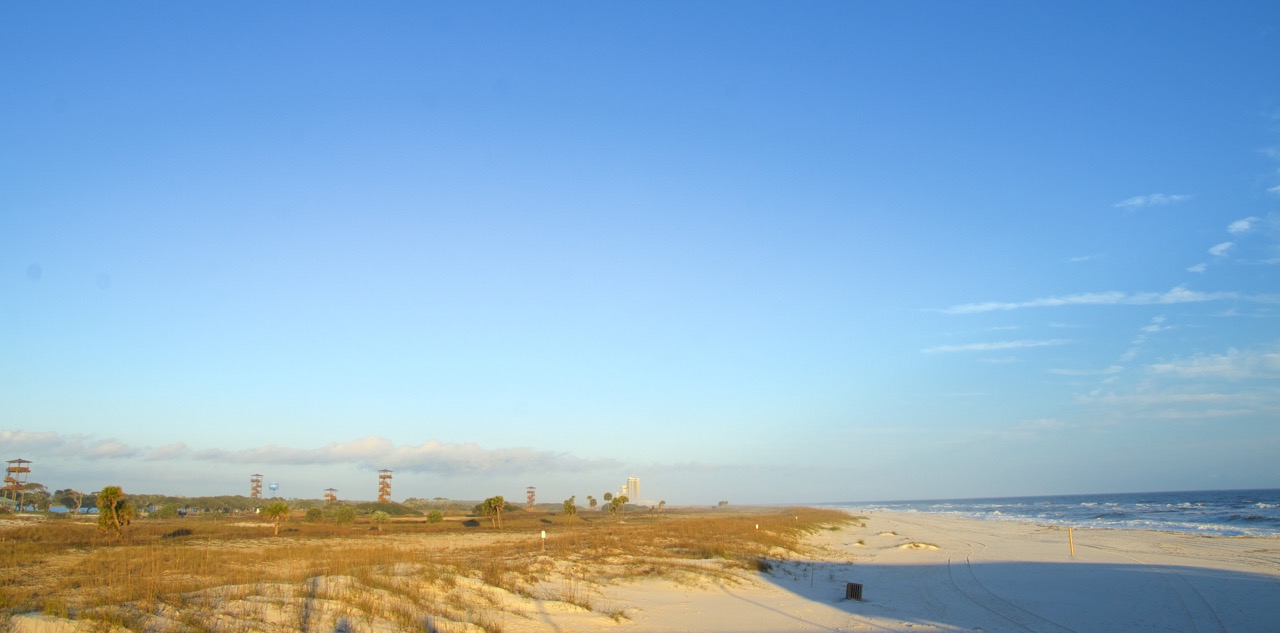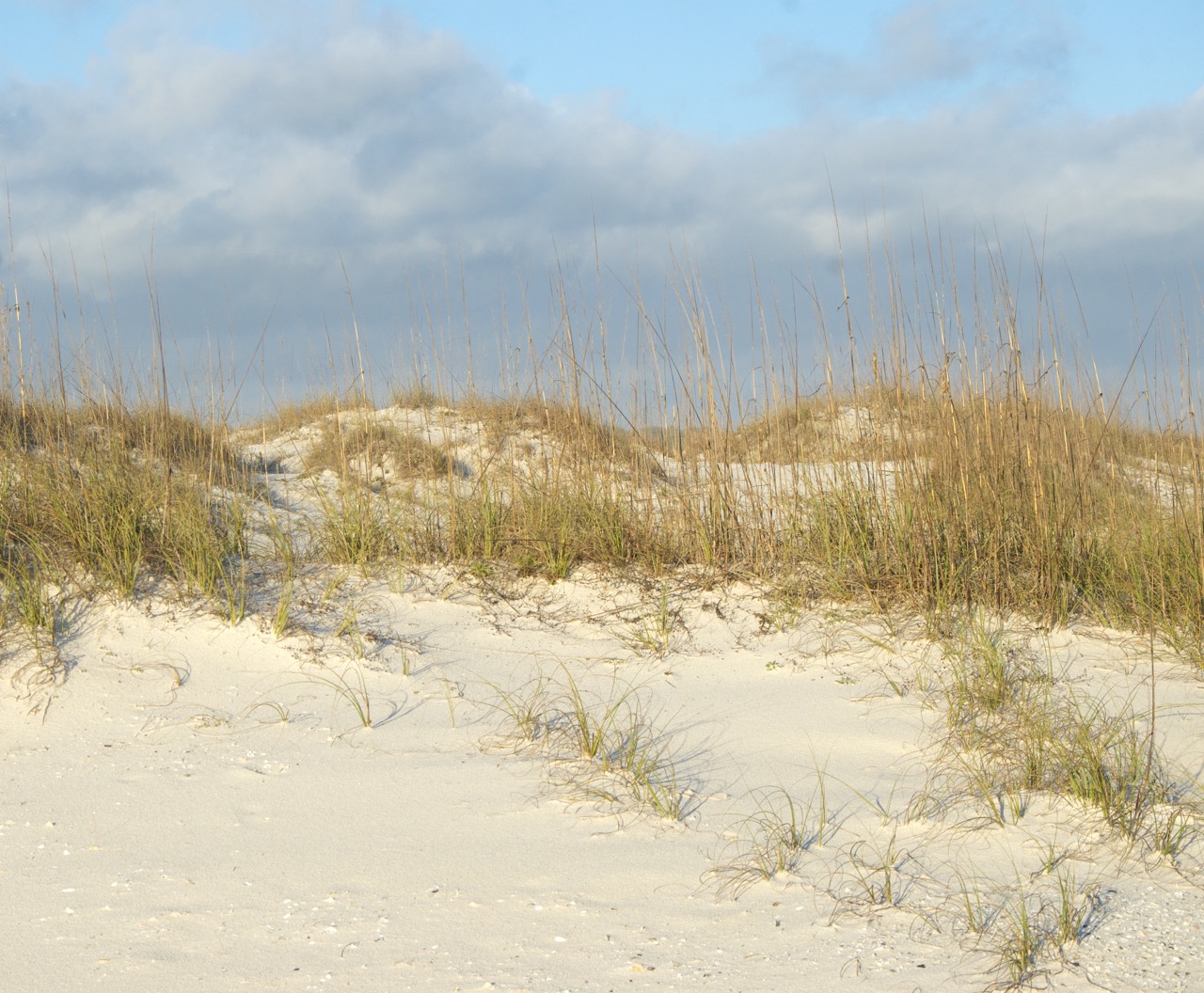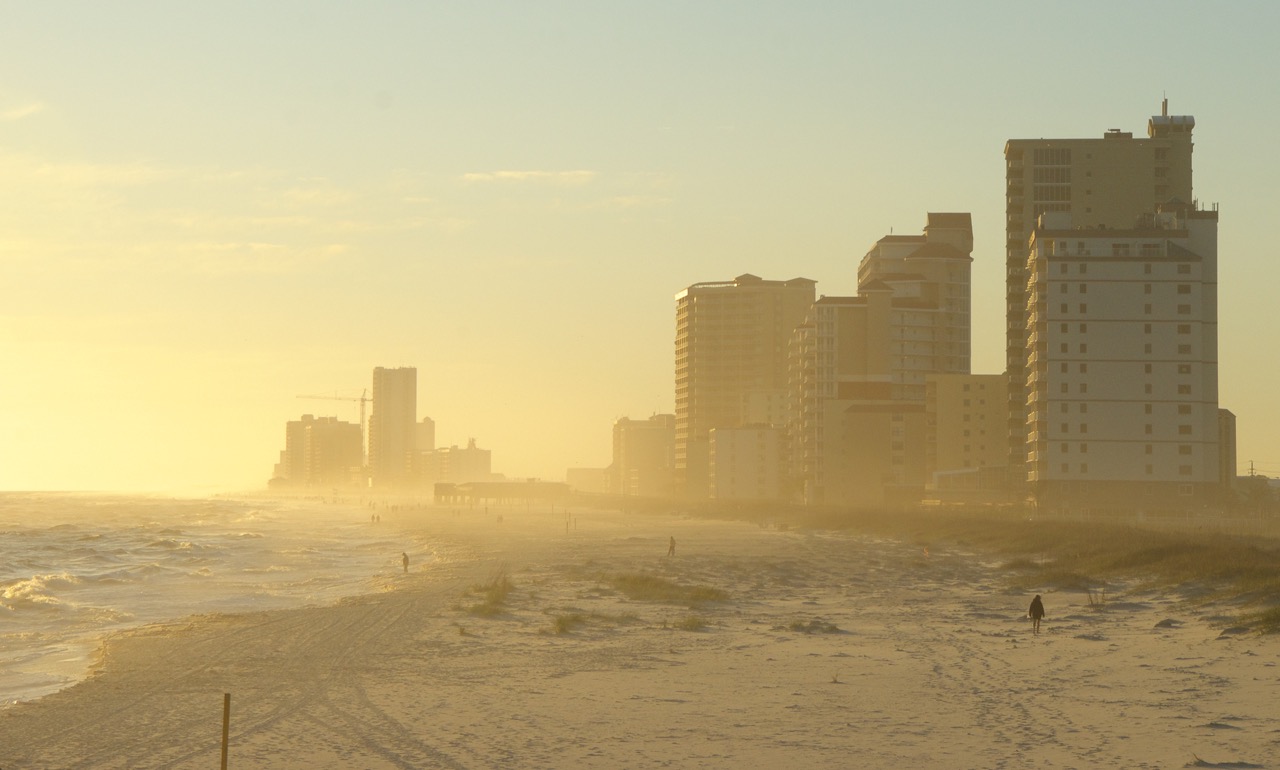
Gulf State Park Beach, the proposed site for a hotel and convention center: Glynn Wilson
By Glynn Wilson –
MOBILE, Ala. — A federal judge grilled lawyers here Tuesday about the questionable legality of a plan put forward by the administration of Alabama Governor Robert Bentley to use BP oil spill environmental restoration money for economic development to build a hotel and convention center on the state park beach in Gulf Shores.
Without considering any other reasonable, responsible, relevant alternatives, as required by law, the state proposed to build the convention complex with $58 million out of $85 million it received from the $1 billion early restoration fund provided by British Petroleum before the conclusion of the larger lawsuit that found the company negligent and chiefly responsible for the most devastating environmental disaster in U.S. history. Halliburton’s faulty concrete and problems with Transocean’s Deepwater Horizon oil rig were also found at fault, along with the lack of regulatory oversight by the Bush administration’s Minerals Management Service.
The Obama administration negotiated the settlement through the courts to hold the company accountable. But instead of proposing to use the windfall of money from the case to help restore the environment on the Gulf Coast, as other states have done in Louisiana, Texas, Florida and Mississippi, Alabama’s government and many local governments have chosen economic development projects to ostensibly bring tourists back to the coast.
The Gulf Restoration Network, a non-profit environmental group based in Louisiana, along with named claimants in Alabama, filed a lawsuit to stop what they see as a gross misuse of the money.
In questioning the lawyers who tried to argue that the Gulf State Park development was the only reasonable alternative, U.S. District Judge Charles Butler seemed skeptical.
The sole basis for the state’s contention that the hotel and convention center are desperately needed to bring back 120,000 visitor days a year it lost during the disaster in 2010 was a 15-year-old study based on sketchy data.
“That (study) was done 15 years ago today,” Judge Butler said with scorn in his voice. “Are you really telling me this is a legitimate, reasonable basis to say that problem still exists? We all know that in the past few years, Gulf Shores has again had another explosion (of visitors). You’d have to have an additional analysis to support a contention to say there is a need to replace visitors.”
Robert Wiygul, the attorney representing the Gulf Restoration Network, argued that the court record contained nothing to support the state’s position, and is asking for a summary judgement to dismiss the plan and send the state back to the drawing board.
“The law is clear that you have to look at reasonable alternatives,” Wiygul said. “That’s not what happened in this case.”
Laws in play in the case include the National Environmental Policy Act of 1970, the Oil Pollution Act of 1990 that was passed in the wake of the Exxon Valdez oil spill in Alaska, and the Oil Spill Recovery Act of 2010 passed after the BP disaster in the Gulf. The laws require the company and the states “to fix what’s broken,” Wiygul said.
A beach hotel will not do that, he said, and since the state did not even consider any alternatives other than the convention center idea, the plan should be thrown out by the courts.
The judge seemed to agree. But at the end of the morning session of oral arguments, he cautioned observers not to draw firm conclusions about how he might rule based on his skeptical questioning style.
“Obviously I’ve got some thoughts,” Judge Butler said.
The judge took senior status in 2005 and people who know him say he is an old fashioned objective, independent judge who was appointed to the bench by President Ronald Reagan in 1988.
He promised to issue a ruling in the case “as soon as possible.”
David Underhill, a Mobile resident who is named as a claimant in the case, said one of the biggest mysteries in the case is how the project even got as far as it did. Alabama’s plan was approved by BP and a group of federal and state trustees from the five impacted Gulf states appointed to oversee how the BP money was spent.
Another mystery, he said, is why no one in the case has even considered what happens to dune ecosystems when major construction projects are built on the beach (see photos below).
“Not only would a hotel and convention center NOT be good for the environment or do anything to restore it,” he said. “In fact it could be argued that it will cause damage to the beach and result in the loss of tourism dollars in the future when the beach is under water. One of the inevitable impacts of climate change due to human induced global warming is rising sea levels. Would it not be prudent to consider this and prevent any new developments along Alabama’s beautiful Gulf Coast?”
The state is holding an open house to display plans for the convention complex and other projects within the park on Thursday, Jan. 28, at the Orange Beach Community Center, from 4-6 p.m.

Notice how the dunes have built up on the Gulf State Park beach without a hotel and convention center development over the past decade: Glynn Wilson

Notice how the beach erodes with high rise condos on private property in Gulf Shores: Glynn Wilson













